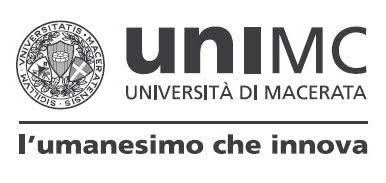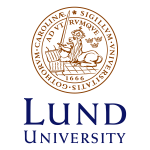

Dipartimento di Studi Umanistici, sezione Filosofia e Scienze Umane
Centro di ricerca interdipartimentale in Psicologia della comunicazione e semiotica del testo “János Sándor Petöfi”


Dipartimento di Studi Umanistici, sezione Filosofia e Scienze Umane
Centro di ricerca interdipartimentale in Psicologia della comunicazione e semiotica del testo “János Sándor Petöfi”
Macerata (Italy), 6-7 April 2022
Aula A, Filosofia e Scienze Umane, via Garibaldi 20, Macerata
This symposium is dedicated to Ugo Savardi who, alongside Ivana Bianchi (Università di Macerata), devoted a good deal of his time and energy to the Experimental Phenomenology of Perception Lab at the University of Verona over the last 20 years. The workshop represents a step forward in terms of the main aims of the laboratory which are to disseminate information about Experimental Phenomenology as originally outlined by Paolo Bozzi and to encourage further developments in this field. Several conferences have been organized in Italy in which the noble origins and solid foundations of Experimental Phenomenology were discussed with reference to the great maestri of the first and second generation, many of whom, unfortunately, have recently passed away.
This symposium intends to be an opportunity for joint reflections from established and fresh sources on current topics and on what the immediate future holds for the Experimental Phenomenology of Perception, especially if we widen the field to encompass other approaches and disciplines. These might be, for example, Philosophy, but also Cognitive Linguistics, the Psychology of reasoning, Experimental aesthetics, Architecture and Environmental Psychology. We want to focus on innovation and the future as this was always at the forefront of Ugo Savardi’s mind. We would like to think of this as the first of a series of meetings that might take place in the future in other universities, in Italy or abroad. We hope that it will provide opportunities to explore the connections between this approach and other perspectives and methods. The Experimental Phenomenology of Perception is not simply something of historical value. It also represents a lively and promising way of approaching research into the Psychology of Perception and Cognition, both now and in the years to come.
The symposium is designed as a triptych.
A first look at Experimental Phenomenology (6 April, 14.30-19.45) is provided by a number of philosophers and psychologists who have taken part in the project in order to disseminate a series of writings by Paolo Bozzi (which were originally in Italian) to the English speaking community (Bianchi I., Davies R. (eds). Paolo Bozzi’s Experimental Phenomenology. Routledge, 2019)
The second part of the symposium (7 April 8.45-11.00) proposes two in-depth analyses of the cross-over between various different areas based on the topic of opposites, an area of interest in Ugo Savardi’s research. The aim is to provide a glimpse into the developments which are taking place both now and in the future, with links to the fields of Cognitive Linguistics, Environmental Psychology and Philosophy.
The third part of the symposium (7 april 11-13.30) has the aim of stimulating a discussion after a series of short video-recorded presentations by colleagues from a number of different disciplines outside Experimental Phenomenology. The idea is to share suggestions regarding various potential openings for Experimental Phenomenological research.
14.30-15.00 – Welcome address: John McCourt, Head of the Department of Humanities, Università di Macerata; Arianna Fermani; Director of the Degree Courses in Philosophy, University of Macerata; Ivana Bianchi (Associate professor of General Psychology, Università di Macerata).
Chairman Tiziano Agostini (Università di Trieste)
15.00-15.25 – Michael Kubovy (Department of Psychology, University of Virginia). L’interosservazione come metodo per la fenomenologia sperimentale [Interobservation as a method for experimental phenomenology]
Bozzi, P. (1978). L’interosservazione come metodo per la fenomenologia sperimentale. Giornale Italiano di Psicologia, 5, 229-239. Eng. Trasl.. in Bianchi, I., & Davies, R. (Eds) (2019). Paolo Bozzi’s Experimental Phenomenology. London and New York: Routledge (pp. 198-206).
SINCE THE PHENOMENAL WORLD IS NOT ONE’S PRIVATE WORLD, IT CAN BE INTER-OBSERVED. BOZZI PUTS FORWARD A NEW EXPERIMENTAL METHOD, INTER-OBSERVATION, AS AN ALTERNATIVE TO THE CLASSIC EXPERIMENTAL METHOD USED IN PSYCHOLOGY WHICH PRESCRIBES INDIVIDUAL SUBJECTS. HE DISCUSSES THE BASES OF THIS METHOD, ITS ADVANTAGES AND THE CONDITIONS UNDER WHICH ITS USE IS RECCOMENDED.
15.30-15.55 – Achille Varzi (Columbia University, NY). La corrente della coscienza ovvero i fatti sotto osservazione [The stream of consciousness, or the events under observation]
Bozzi, P. (1985). La corrente della coscienza ovvero i fatti sotto osservazione. Teorie & Modelli, II (1), 5-38. Eng. Trasl. in Bianchi, I., & Davies, R. (Eds) (2019). Paolo Bozzi’s Experimental Phenomenology. London and New York: Routledge (pp. 81-103).
WHAT IS “UNDER OBSERVATION” IN TEMPORAL TERMS? THIS IS A BRILLIANT DISCUSSION OF THE TEMPORAL EDGES OF THE PHENOMENAL PRESENT FULL OF INTERESTING REFERENCES AND OBSERVATIONS.
16.00-16.25 – Marco Bertamini (University of Liverpool, UK – Dipartimento di Psicologia generale, Università di Padova) Analisi fenomenologica del moto pendolare armonico e Le condizioni del movimento ‘naturale’ lungo i piani inclinati. [Phenomenological analysis of pendular harmonic motion and the conditions for ‘natural’ motion along inclined planes]
Bozzi, P. (1958). Analisi fenomenologica del moto pendolare armonico. Rivista di Psicologia, 52 (4), 281-302; Bozzi, P. (1959). Le condizioni del movimento “naturale” lungo i piani inclinati. Rivista di Psicologia, LIII (II), 337-352. Anche in: Bozzi, P. (1993), Experimenta in visu. Ricerche sulla percezione (pp. 51-67). Eng. Trasl.. in Bianchi, I., & Davies, R. (Eds) (2019). Paolo Bozzi’s Experimental Phenomenology. London and New York: Routledge (pp. 213-242).
THESE TWO STUDIES ON THE PHENOMENOLOGY OF MOTION REPRESENT TWO INAUGURAL WORKS ON WHAT 20 YEARS LATER WAS CALLED NAÏVE (OR INTUITIVE) PHYSICS.
16.30-16.55 – Ian Verstegen (Associate Director of Visual Studies, University of Pennsylvania) Qualità terziarie [Tertiary qualities].
Bozzi, P. (1990). Qualità terziarie. In: Bozzi, P. (1990). Fisica ingenua (pp. 88-117). Milano: Garzanti. Eng. Trasl. in Bianchi, I., & Davies, R. (Eds) (2019). Paolo Bozzi’s Experimental Phenomenology. London and New York: Routledge (pp. 345-364).
WHAT IS THE PLACE OF TERTIARY QUALITIES (OR EXPRESSIVE QUALITIES) IN THE PHENOMENAL EXPERIENCE? DO THEY SHARE THE SAME FACTUAL IDENTITY OF WHAT WE MEAN BY “REALITY”? BOZZI’S ANWER IS “YES”.
Chairman Richard Davies (Università di Bergamo)
17.20-17.45 – Tiziano Agostini (Dipartimento di Scienze della Vita, Università di Trieste)
Osservazioni inedite su certe peculiarità delle immagini consecutive. [Original observations on certain characteristics of afterimages]
Bozzi, P. (1989). Osservazioni inedite su certe peculiarità delle immagini consecutive. In: A. Garau (a cura di), Pensiero e visione in Rudolf Arnheim. Milano: Franco Angeli. Anche in: P. Bozzi (1993).Experimenta in visu. Ricerche sulla percezione (pp.133-163). Milano: Guerini. Eng. Trasl.. in Bianchi, I., & Davies, R. (Eds) (2019). Paolo Bozzi’s Experimental Phenomenology. London and New York: Routledge (pp. 334-340).BESIDES PROVIDING AN OPPORTUNITY TO DEMONSTRATE THE SPECTACULAR BEHAVIOR OF CROMATIC AFTER EFFECTS (WHICH LED BOZZI TO TALK OF A “HYDRAULIC MODEL”), THIS PAPER SHOWS EXPERIMENTAL PHENOMENOLOGY OF PERCEPTION WORKING ON OBSERVATIONS WHICH ARE AT THE BOUNDARY BETWEEN THE GENUINE PHENOMENAL DISTINCTIONS BETWEEN WHAT APPEARS TO BE SUBJECTIVE AND WHAT APPEARS TO BE OBJECTIVE. THIS IS A DESCRIPTIVE (NOT EPISTEMOLOGICAL) DISTINCTION IN BOZZI’S VIEW.
17.50-18.15 – Maurizio Ferraris (Dipartimento di Filosofia e Scienze dell’Educazione, Università di Torino). Esperienza fenomenica, esperienza epistemica ed esperienza psicologica. Appunti per l’epistemologia del metodo fenomenologico sperimentale [Phenomenal experience, epistemic experience and psychological experience. Notes towards an epistemology of the phenomenological experimental method.]
Bozzi, P. (1976). Esperienza fenomenica, esperienza epistemica ed esperienza psicologica. Appunti per l’epistemologia del metodo fenomenologico sperimentale. In: AA.VV. (1976). Problemi epistemologici della psicologia (pp.73-87). Vita e Pensiero, Pubblicazioni della Università Cattolica di Milano. Ripubblicato col titolo “Appunti per una discussione con gli epistemologi” in Bozzi, (1989). Fenomenologia sperimentale. Il Mulino (pp. 155-173). Eng. Trasl. in Bianchi, I., & Davies, R. (Eds) (2019). Paolo Bozzi’s Experimental Phenomenology. London and New York: Routledge (pp. 64-75).
IN ORDER TO UNDERSTAND THE SIGNIFICANCE OF THE EXPERIMENTAL PHENOMENOLOGY OF PERCEPTION FOR BOZZI, ONE NEEDS TO UNDERSTAND WHAT “PHENOMENAL EXPERIENCE” MEANS TO HIM. IN THIS CHAPTER PAOLO BOZZI SETS OUT THE DIFFERENCE BETWEEN PHENOMENAL EXPERIENCE (I.E. DIRECT EXPERIENCE OR “REALITY”), EPISTEMIC EXPERIENCE (I.E. THE KIND OF EXPERIENCE DESCRIBED BY MEANS OF OPERATIONS/MEASUREMENTS WHICH IS THE OBJECT OF A SPECIFIC DISCIPLINE) AND PSYCHOLOGICAL EXPERIENCE (I.E. THE BIOLOGICAL/PSYCHOLOGICAL PROCESSES OCCURRING IN ONE’S OWN BRAIN).
18.20-18.45 – Orilia Francesco (Dipartimento di Studi Umanistici, Università di Macerata) Analisi logica dello schema psicofisico [Logical analysis of the psychophysical (L-R) scheme.]
Bozzi, P. (1985). Analisi logica dello schema psicofisico (S-D). Teorie eModelli, II (2), 3-31. Anche in: Bozzi, P. (1989). Fenomenologia sperimentale (pp. 297-330). Bologna: Il Mulino. Eng. Trasl.. in Bianchi, I., & Davies, R. (Eds) (2019). Paolo Bozzi’s Experimental Phenomenology. London and New York: Routledge (pp. 130-149).
BY DISCUSSING THE INDEPENDENCE OF THE PHENOMENAL WORLD FROM THE UNDERLYING MECHANICAL PROCESSES, BOZZI ADDS A STRONG ARGUMENT IN SUPPORT OF HIS IDEA OF AN EXPERIMENTAL PHENOMENOLOGY OF PERCEPTION “IUXTA PROPRIA PRINCIPIA” AND AT THE SAME TIME PROVIDES A STRONG LOGICAL ARGUMENT TO GET RID OF ANY TYPE OF PHYSICAL REDUCTIONISM OR NEURO-REDUCTIONISM.
18.50-19.15 – Ivana Bianchi (Dipartimento di Studi Umanistici, Università di Macerata) Fenomenologia Sperimentale [Experimental Phenomenology].
Bozzi, P. (2002). Fenomenologia sperimentale. Teorie & Modelli, nuova serie, VII (2-3), 13-48. Eng. Trasl. in Bianchi, I., & Davies, R. (Eds) (2019). Paolo Bozzi’s Experimental Phenomenology. London and New York: Routledge (pp. 11-38).
THIS IS ONE OF THE LAST WRITINGS OF PAOLO BOZZI AND CERTAINLY THE PAPER WHERE HE PRESENTS AN OVERVIEW OF HIS EXPERIMENTAL PHENOMENOLOGY OF PERCEPTION. THE POINTS DISCUSSED HERE ARE IN AGREEMENT WITH THE CONTENTS DISCUSSED BY HIMSELF IN THE LETTURE VERONESI, 2001 AND THIS IS AN IMPORTANT CONFIRMATION THAT THE PICTURE PRESENTED IN THIS PAPER FITS IN WELL WITH HIS PROGRAM OF THE EXPERIMENTAL PHENOMENOLOGY OF PERCEPTION.
19.15-19.45 – Discussion
8.45-Opening to the second and third part of the symposium
Chairman Ivana Bianchi (Università di Macerata)
9.00-10.00 – I profili intermodali degli opposti [The intermodality profiles of opposites]
9.00-9.30 Carita Paradis, Joost van de Weijer (Centre for Languages and Literature, Lund University)
9.30-10.00 Elena Capitani, Arianna Fermani (Dipartimento di Studi Umanistici, Università di Macerata).
10.00-11.00 – Contrari e conoscenza empirica dello spazio [Opposites and spatial empirical knowledge]
10.00-10.30 Roberto Burro, Margherita Pasini, Margherita Brondino (Dipartimento di Scienze Umane, Università di Verona),
10.30-11.00 Carla Danani (Dipartimento di Studi Umanistici, Università di Macerata)
11.20-12.20 – Mosaic. This part is designed as “a mosaic” of short (60-90 seconds) videos (pre-recorded). These interventions will be made by a large group of academics, working in different areas of research. The aim of these short messages is to suggest ways in which Experimental Phenomenology is useful, if applied, to their field of study.12.20-13.30 Final Discussion and closing remarks (Marco Bertamini, Ivana Bianchi)
For further information: ivana.bianchi@unimc.it


